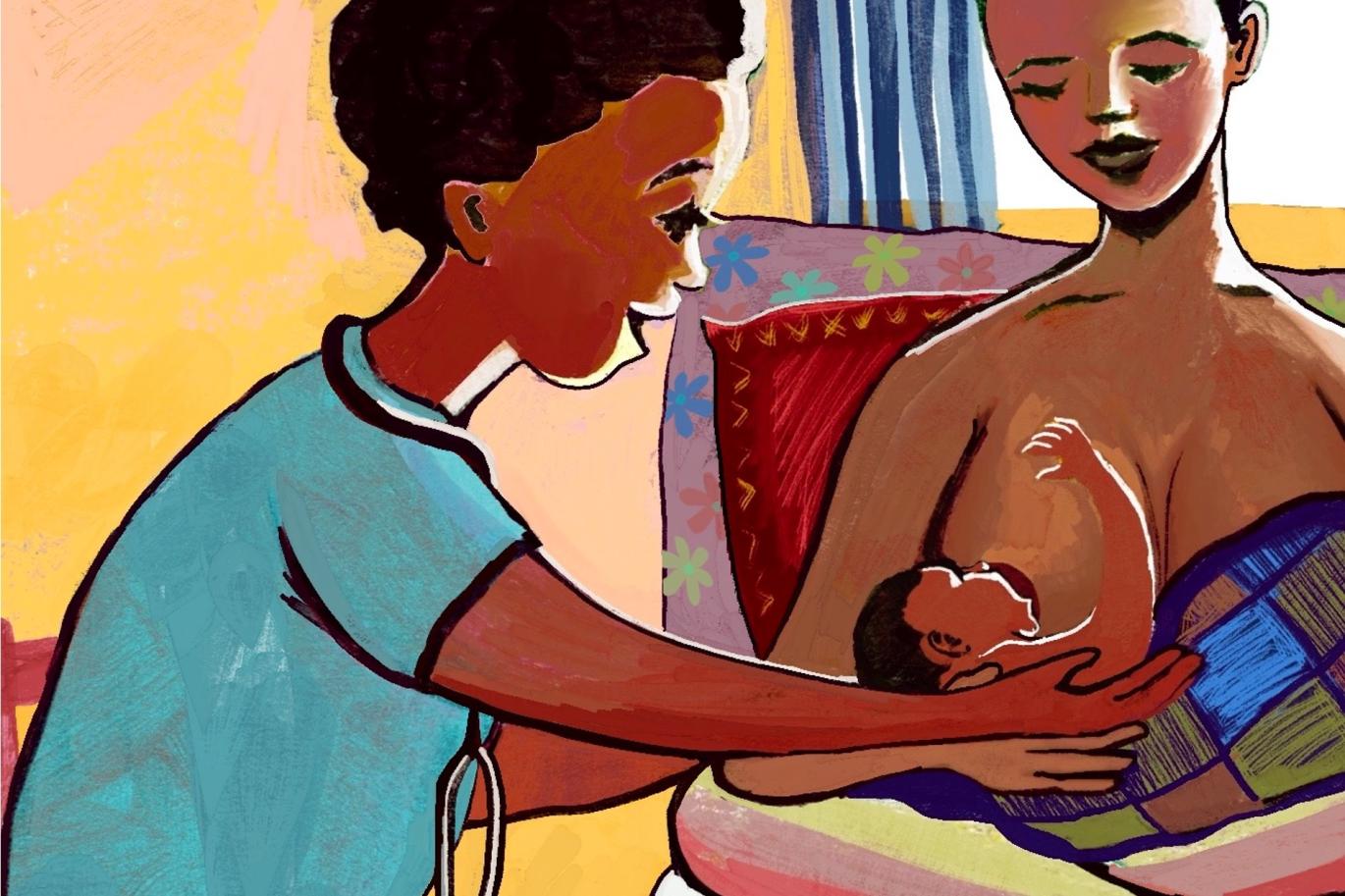California Community Midwives Face Significant Challenges to Becoming Medi-Cal Providers, Study Finds

While low-income communities in California continue to be hardest hit by the recent wave of hospital maternity ward closures, community midwives say they face overwhelming barriers to becoming Medi-Cal providers, according to a study by researchers at the UCSF Osher Center for Integrative Health. Without increasing the number of midwives who are Medi-Cal providers, access to perinatal care will worsen in a state already grappling with a maternal mortality crisis.
Researchers conducted in-depth interviews with 23 community midwives from 20 counties in California in 2022 and 2023 to understand their experiences with Medi-Cal and barriers to becoming Medi-Cal providers. They found that community midwives face barriers at all stages from signing up to be a Medi-Cal provider to obtaining reimbursement.
Community midwives include Certified Nurse-Midwives and Licensed Midwives. They care for families during pregnancy, birth and postpartum, and practice in freestanding birth centers and homes. Though community midwives can seek Medi-Cal reimbursement for their services, current policies present major challenges to doing so.
The study revealed significant shortcomings with Medi-Cal reimbursement amounts and processes coupled with expensive liability insurance requirements, misalignment with California midwifery licensing guidance, and delays at all stages. The consequences of these barriers are particularly daunting for community midwives, who typically work as solo practitioners or in small groups.
One midwife interviewed for the study said, "It's been hard. We opened the practice assuming it would be easy to accept Medi-Cal. We did 15 births, for free, and never got reimbursed...15 is a lot in our small practice." Given these barriers, relatively small numbers of community midwives can provide care to people insured through Medi-Cal, despite statewide data showing that parents insured through Medi-Cal have the highest levels of interest in midwifery care.
“Our research shows that immediate action is needed to improve the Medi-Cal registration and reimbursement process for community midwives and increase reimbursement rates, as part of the state’s efforts to reduce maternal mortality and morbidity and improve care for low-income families,” said Ariana Thompson-Lastad, PhD, primary investigator of the study and an Assistant Professor of Family and Community Medicine at UCSF. “This will provide equitable access to healthcare services for pregnant and postpartum people and strengthen the midwifery workforce.”
"Community midwifery care stands to be an important strategy to improve access and outcomes for people insured by Medi-Cal, especially those hit hardest by the maternity care shortage in California,” said Holly Smith, co-lead of the California Midwifery Learning Collaborative, a project of the Institute for Medicaid Innovation. “These include rural and urban communities affected by the sudden deluge of maternity unit closures, and BIPOC birthing people seeking respectful, patient-focused care."
The California Midwifery Learning Collaborative invited the researchers to present their findings in a policy brief and a gathering with Medi-Cal officials in summer 2023, as part of statewide policy efforts to increase access to midwifery care for people insured through Medi-Cal. View the full policy brief which details seven barriers community midwives face when attempting to become Medi-Cal providers.
“We have seen the results in California and nationally when systems continue to rely on failed or partial strategies to improve outcomes,” said Tanya Khemet Taiwo, PhD, MPH, CPM, assistant professor in the Department of Midwifery at Bastyr University, who co-authored the policy brief. “The maternity care crisis in our counties and California specifically calls for all stakeholders to invest resources in new systems, new ideas, and evidence-based solutions.”
There has been increased interest in and uptake of midwifery care in recent years. Studies have found that midwifery care results in fewer episiotomies, lower rates of cesarean sections, complications, and interventions; increased rates of breastfeeding; and higher patient satisfaction. It can also contribute to lower healthcare costs.
More About the Study
The study team includes several UCSF Osher Center researchers: primary investigator Ariana Thompson-Lastad, PhD, and postdoctoral research fellows Jessica M. Harrison, PhD, LCSW, and Chanda Williams, PhD. Policy brief co-authors include Tanya Khemet Taiwo, PhD, CPM (Bastyr University), Mounika Parimi, MA (UC Berkeley) and Sara Jhanjar, BA (California Health Sciences University). The community midwives interviewed for the study were based in Alameda, Amador, Calaveras, Contra Costa, El Dorado, Los Angeles, Marin, Placer, Sacramento, San Diego, San Francisco, San Joaquin, San Mateo, Santa Barbara, Santa Clara, Solano, Stanislaus, Sutter, Yolo, and Yuba.
The researchers are continuing to interview community midwives across California for this study. Are you a California midwife interested in sharing your experiences? Click here to participate in our ongoing research.

